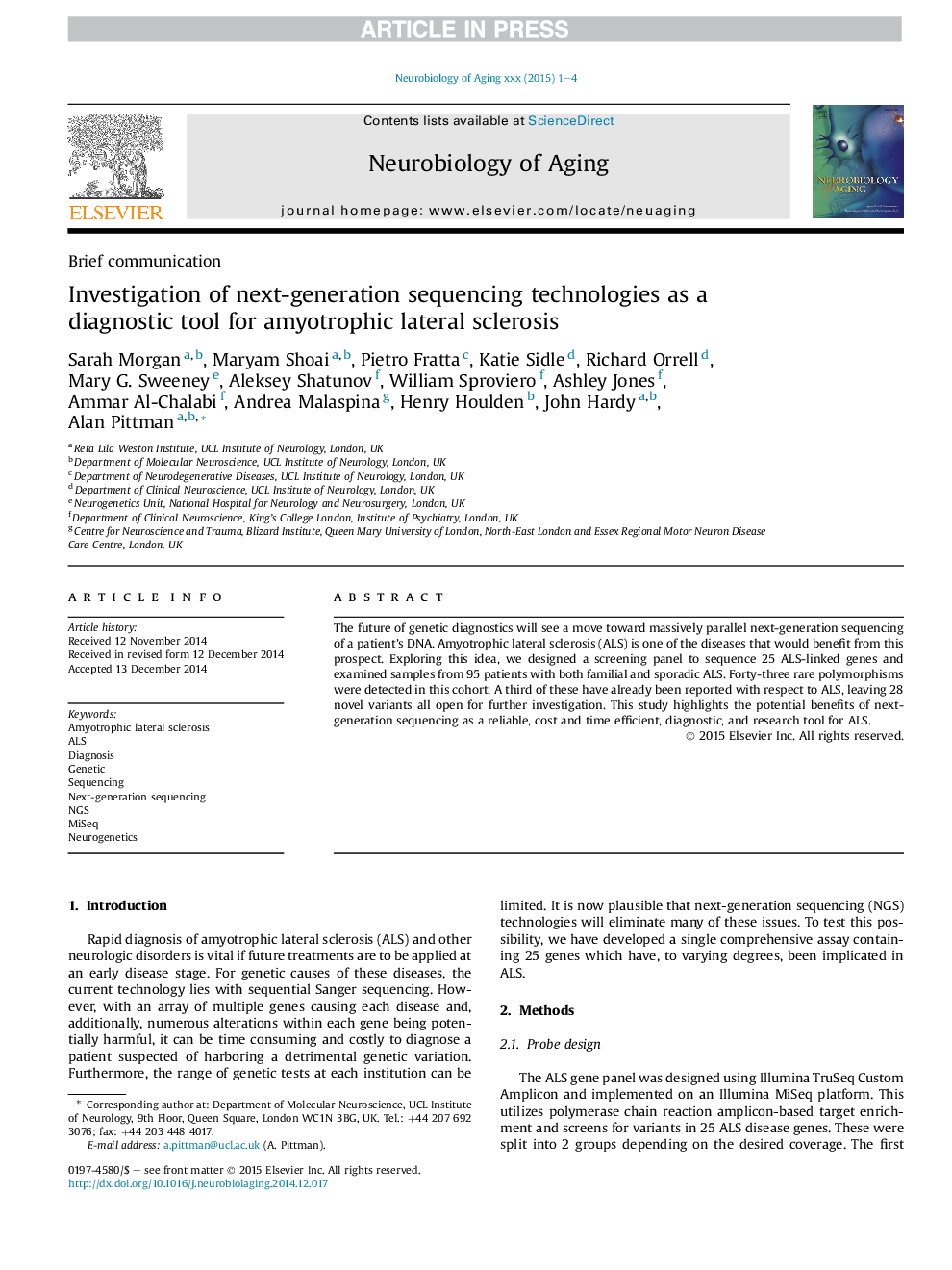| Article ID | Journal | Published Year | Pages | File Type |
|---|---|---|---|---|
| 6804738 | Neurobiology of Aging | 2015 | 4 Pages |
Abstract
The future of genetic diagnostics will see a move toward massively parallel next-generation sequencing of a patient's DNA. Amyotrophic lateral sclerosis (ALS) is one of the diseases that would benefit from this prospect. Exploring this idea, we designed a screening panel to sequence 25 ALS-linked genes and examined samples from 95 patients with both familial and sporadic ALS. Forty-three rare polymorphisms were detected in this cohort. A third of these have already been reported with respect to ALS, leaving 28 novel variants all open for further investigation. This study highlights the potential benefits of next-generation sequencing as a reliable, cost and time efficient, diagnostic, and research tool for ALS.
Keywords
Related Topics
Life Sciences
Biochemistry, Genetics and Molecular Biology
Ageing
Authors
Sarah Morgan, Maryam Shoai, Pietro Fratta, Katie Sidle, Richard Orrell, Mary G. Sweeney, Aleksey Shatunov, William Sproviero, Ashley Jones, Ammar Al-Chalabi, Andrea Malaspina, Henry Houlden, John Hardy, Alan Pittman,
